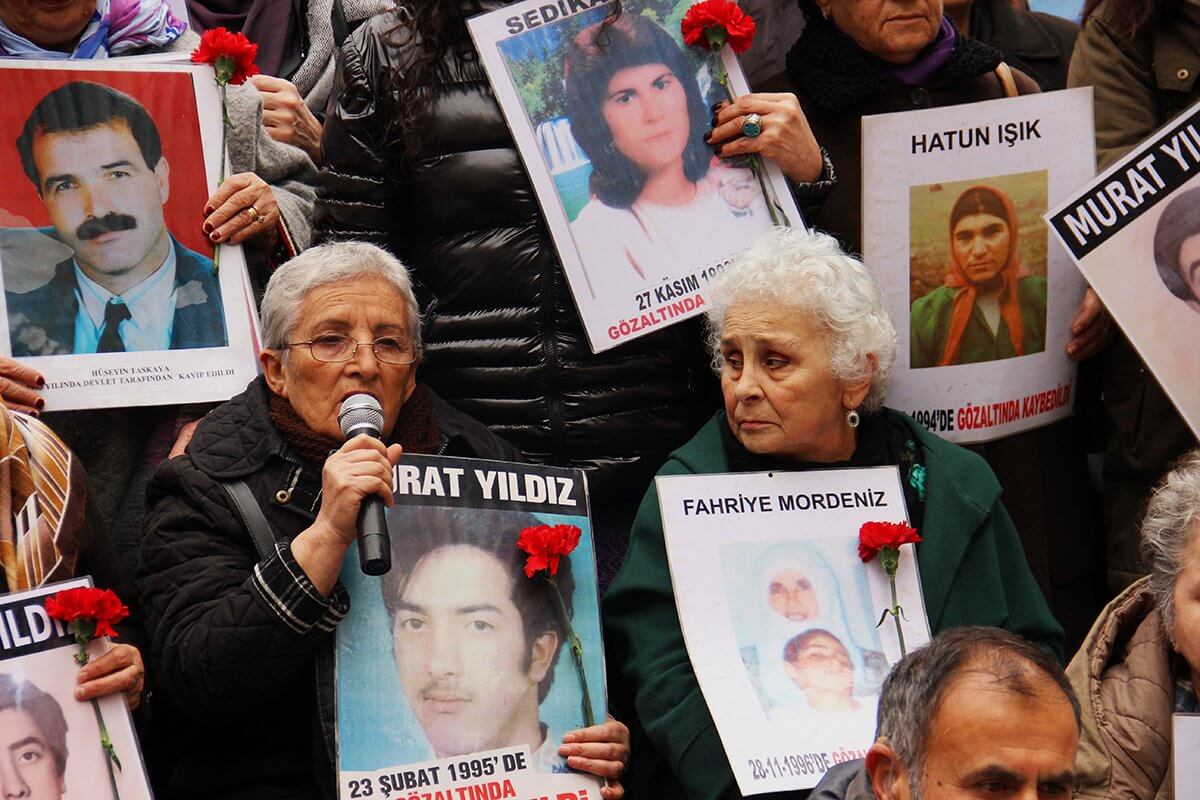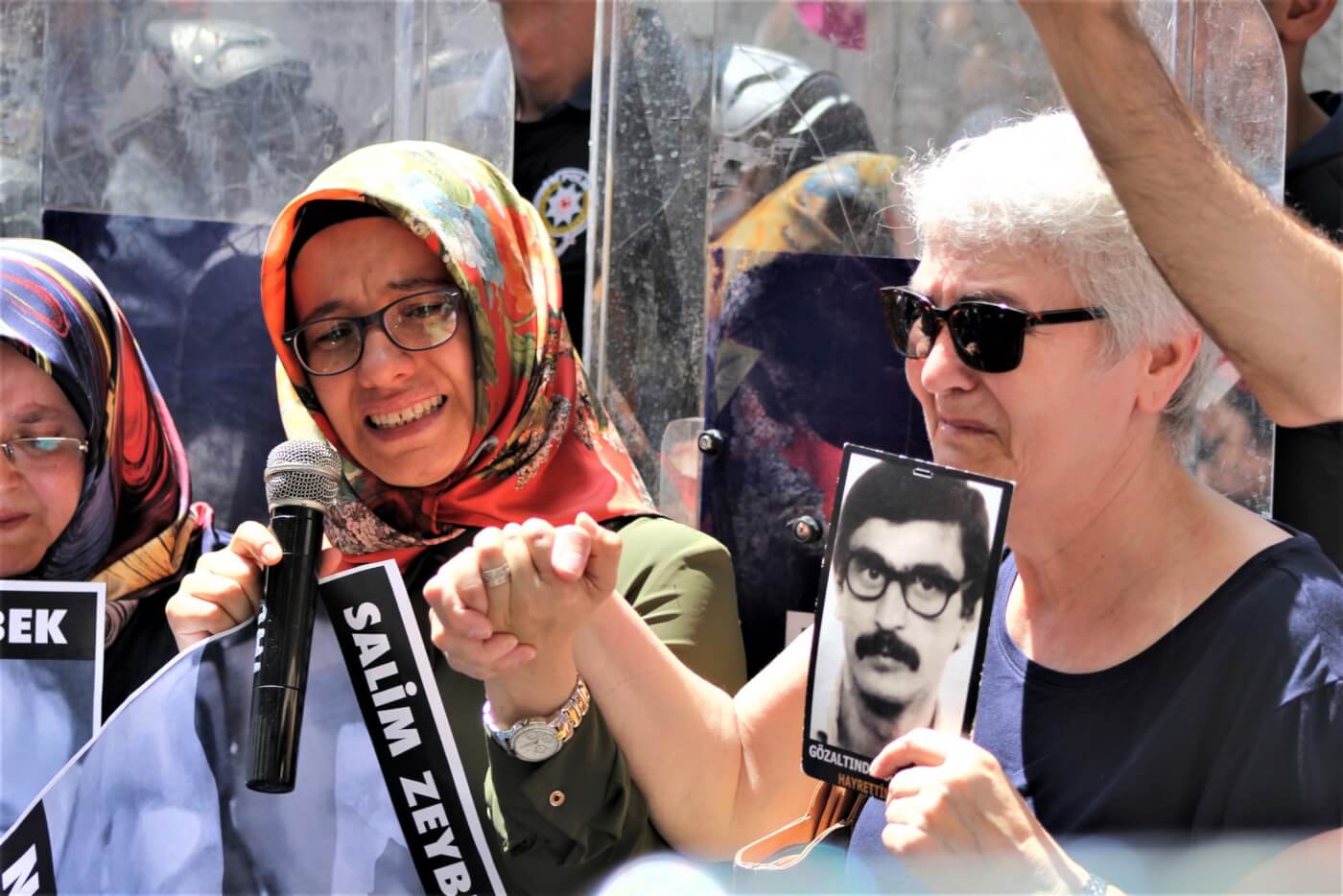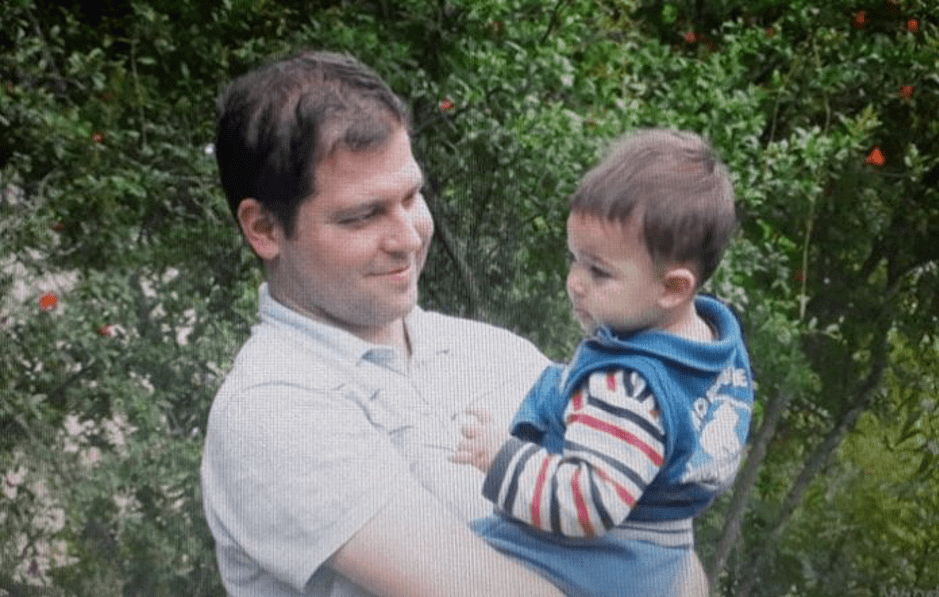On July 25, an elderly lady by the name of Hanife Yıldız was dragged on the ground by police officers, simply because she wanted to leave cloves in İstanbul’s historic Galatasaray square. The incident was so horrifying that it even left the people at the scene fearing that she would have a heart attack.
Hanife was at the Galatasaray square to commemorate her son, Murat Yıldız, who disappeared while in police detention some 25 years ago.
“They took away my son’s right to life, my right to motherhood,” Hanife says.
Murat was only 19 years old when he was taken into police custody from which he would never re-emerge. Three days into his detention, Hanife would suspect that something was off and visit the police department where Murat was held, only to receive vague information on her son’s whereabouts.
She would later be told by authorities that Murat had allegedly jumped into the water from a ferry while being escorted to a location by two police officers, and that he was nowhere to be found afterwards.
“My son had turned himself in voluntarily. Why on earth would he escape when he was not charged with anything that requires imprisonment?” Hanife asks.
She has not heard from Murat ever since. Her repeated complaints were dismissed by courts, which gave credence to the police’s account about Murat jumping off the ferry, despite the fact that it was not supported by any eyewitnesses.
Her story, while upsetting on every level, is unfortunately not unique by any means. In fact, Hanife Yıldız is a member of Turkey’s “Saturday Mothers” (Cumartesi Anneleri), the country’s longest-running peaceful protest movement comprised of the mothers and family members of dozens of people who disappeared without a trace during the 80s and 90s, often in police custody.

The victims were mostly citizens of Kurdish origin or those known to have been involved in leftist political activism.
While the Saturday Mothers’ weekly sit-ins called “vigils” have consistently remained peaceful, the Turkish authorities’ response to them almost never is. Their 800th vigil on July 25 was was violently blocked by the police, as was their 700th one, back in August 2018, which ended with many of the mothers being rear-handcuffed and detained.
“All we want is justice,” Hanife says. “We want to know what happened to the lives they took from us.”
Last year, the Saturday Mothers welcomed new unfortunate guests to one of their protests: the wives of six men; Gökhan Türkmen, Yasin Ugan, Özgür Kaya, Erkan Irmak, Mustafa Yılmaz and Salim Zeybek, all of whom disappeared in February 2019.

The men were under investigation or sought by authorities over their suspected links to the Gülen movement, which the Turkish government accuses of orchestrating a failed coup in July 2016. The movement denies any involvement in the incident.
The attempted putsch of 2016 represented an ominous turning point after which Turkey’s shady record of enforced disappearances made a comeback, this time targeting people with alleged ties to the faith-based group.
Rights groups reported the disappearance of nearly 30 people over the past four years. The cases followed a similar pattern where the victims were usually forced into black transporter vans by gunmen in broad daylight, according to eyewitnesses and CCTV footage gathered by family members.
Their relatives’ struggle to track them down was met with a staunch unwillingness by the police and prosecutors to investigate, sometimes despite available surveillance footage where the abductors were clearly visible.
Some have mysteriously resurfaced in police custody several months later, while others still remain unaccounted for, such as former public sector worker Yusuf Bilge Tunç who was reported missing more than a year ago.

Family members of those who reappeared reported significant weight loss, unusual paleness and unwillingness to talk about what happened to them during the time they were missing. Some of them chose to stick to a narrative that they had ran off due to ‘psychological problems,’ which was found a little too flimsy by family members who had no idea that their loved ones were depressed at all. Physical therapist Mustafa Yılmaz for example, was about to start a new job on the day he supposedly ran away from his wife and their little daughter.
Another recurring theme was the inclination of those who turned up to plead guilty to the criminal charges leveled against them, often the charge of being a member of the Gülen movement, voluntarily signing self-incriminating statements immediately upon arrival to the police stations.
Witness testimonies typically play a central role in Gülen-related trials, where such denunciations are regularly interpreted by courts as essential evidence of membership in the group. This is arguably linked to the fact that, since the abortive coup, numerous allegations of torture in police custody have emerged. The UN’s rapporteur on torture, Mr. Nils Melzer, reported in February 2018 that allegedly Gülen-linked detainees were being subjected to brutal interrogation techniques aimed at extracting forced confessions. Abduction allegations strongly suggest that the use of torture to coerce detainees to incriminate themselves and others is not limited to official detention centers, and that they also occur at secret detention sites on which the German Correctiv newsroom made a hard-hitting investigative report in 2018.
Turkey has never ensured accountability for those who disappeared in the 80s and 90s. That is why, after countless government changes, the authorities are still trying to silence the Saturday Mothers. Now, in the same dreary pattern of continuity, people at the crosshairs of the government continue to vanish in thin air.
While enforced disappearances are an unfortunate reality of our times, affecting a wide range of countries from Bangladesh to Mexico, it is particularly disgraceful that it keeps being perpetrated with impunity in a country with which the European Union cooperates so closely on a daily basis.
Ali Dinçer
Solidarity with OTHERS, Belgium
Read Turkey Tribunal’s latest reports on:

